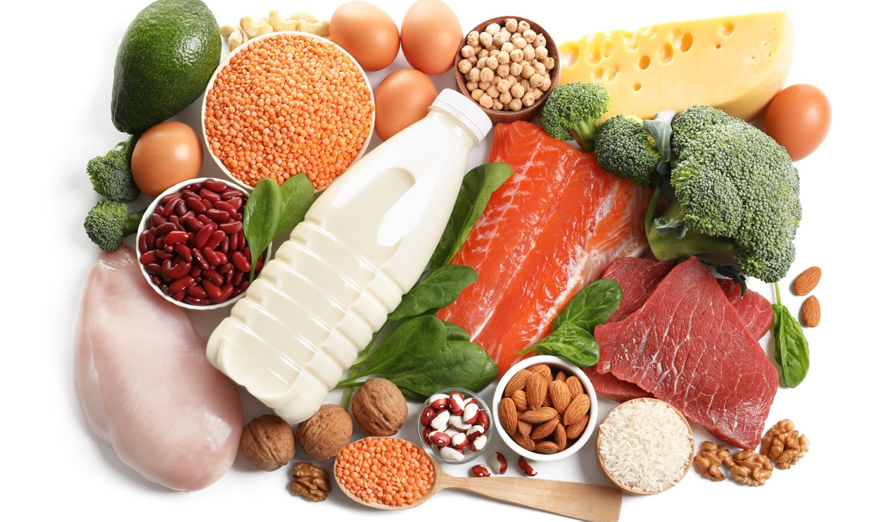
The main function of calcium is to keep our teeth and bones strong, but it is also essential for the normal maintenance of the nervous system, muscles and blood coagulation.
A healthy calcium diet should include between 800 and 1,000 mg of this mineral per day, although there are stages in life when a greater amount is needed, such as in childhood, pregnancy and after menopause. When we talk about calcium, we all think of dairy products as the main source, but what if you are lactose intolerant or simply want to follow a dairy-restricted diet?
We explain which foods you can include in your diet to get the calcium your body needs.
Calcium-rich foods
You can get your daily calcium intake by consuming other foods rich in this important mineral, such as fresh fruit, some vegetables, fish and seafood, among other natural products that you can include in your daily diet.
Nuts and dried fruits
Nuts are a great source of calcium, particularly pistachios (136 mg/100 g), sesame seeds (700 mg/100 g) and almonds (150 mg/100 g). They are therefore recommended to be consumed after breakfast because they can provide your body with about 40 mg of calcium.
In general, most nuts are very beneficial for our health, as they are satiating, provide protein, carbohydrates and promote cardiovascular health.
Fish
Small spices are a good source of calcium. Especially when their bones are consumed. Mainly the following stand out: anchovies, sardines and anchovies. A can of one of these fish can provide between 200 and 400 mg of calcium, besides being a great source of vitamin D, which favors its absorption. For example, 60 g of sardines have the same amount of calcium as a quarter of a liter of milk.
Green leafy vegetables
Green leafy vegetables, such as chard, spinach or leeks, are foods that have plenty of calcium. These foods can contain per 100 g between 100 and 200 mg of calcium. We can incorporate them very easily to our daily diet, either sautéed, steamed, as an accompaniment.... If we also combine them with legumes, such as chickpeas, the calcium intake will be even higher.
Legumes
Legumes, in addition to protein and fiber, also provide a large amount of calcium. Examples are soybeans and chickpeas. The soy drink, being very rich in calcium, is an ideal alternative for people who are allergic to any component of cow's milk.
There are other nutrients that will help our body to absorb calcium:
- Zinc: indispensable mineral for a correct bone density.
- Vitamin K: participates in the formation of the protein involved in the development of teeth.
- Vitamin D: essential for calcium absorption.
- Magnesium: essential in the metabolism of phosphorus and calcium.
- Vitamin B12: involved in the stimulation of bone formation.
As you can see, there are many possibilities to give our body the required amount of calcium without consuming dairy products from animals. In addition, it is also very important to learn how to combine them in a healthy and balanced way, so we invite you to visit our website and discover a lot of healthy and simple recipes with Arròs Montsià!
Start to be part of the lovers of healthy and proximity cuisine.

